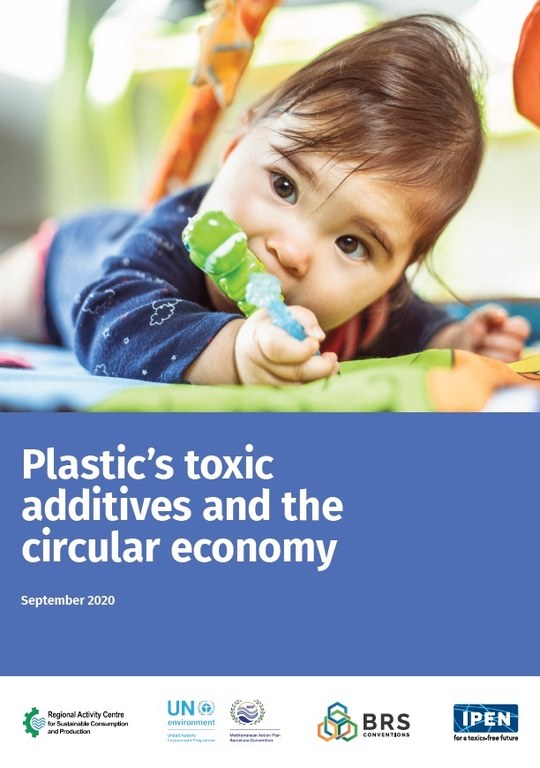TOXIC ADDITIVES IN PLASTICS: HIDDEN HAZARDS LINKED TO COMMON PLASTIC PRODUCTS
Toxic chemicals of concern that are widespread in common plastic products can hinder the momentum for a circular economy. A new report, coordinated by SCP/RAC, serving both the Stockholm Convention and the Barcelona Convention, has been produced in collaboration with the International Pollutants Elimination Network (IPEN) in order to shine a light on extensive evidence of toxic chemical components in plastics that can harm human and environmental health and impede a safe circular economy.
The report covers the presence and impact of the hazardous chemicals of concern in all stages of plastic product use-cycle from production and use, to recycling and landfill, incineration, waste to energy, and land and marine accumulation, and addresses their associated impacts on human, marine biota, and environmental health.
Human health consequences of endocrine disrupting chemicals commonly used in plastics include thyroid function disruption, reproductive impacts, obesity, immune system, increased damage, increased cancer risk and impacts on brain and neurological development.
Toxic additives also affect marine life which is particularly worrying in the Mediterranean Region, considered a biodiversity hotspot.
"The COVID-19 pandemic has illustrated the links between environmental health and the wellbeing of human societies. Now is the time to act on science to reduce plastics' toxic chemical additives and the pollution in all its forms and to seek sustainable ways in which we can live in harmony with nature. Taming the leviathan of plastic litter, which stifles marine life and releases highly hazardous substances in the environment, must become a priority,” Gaetano Leone, Coordinator of UNEP/MAP—Barcelona Convention Secretariat said. There are many steps that can be taken to recover in a smart way from COVID-19. Tackling the plastic pandemic is a giant step towards a green renaissance in Mare Nostrum, Mr. Leone observed.
The publication is available in English, French, Spanish and Arabic.

